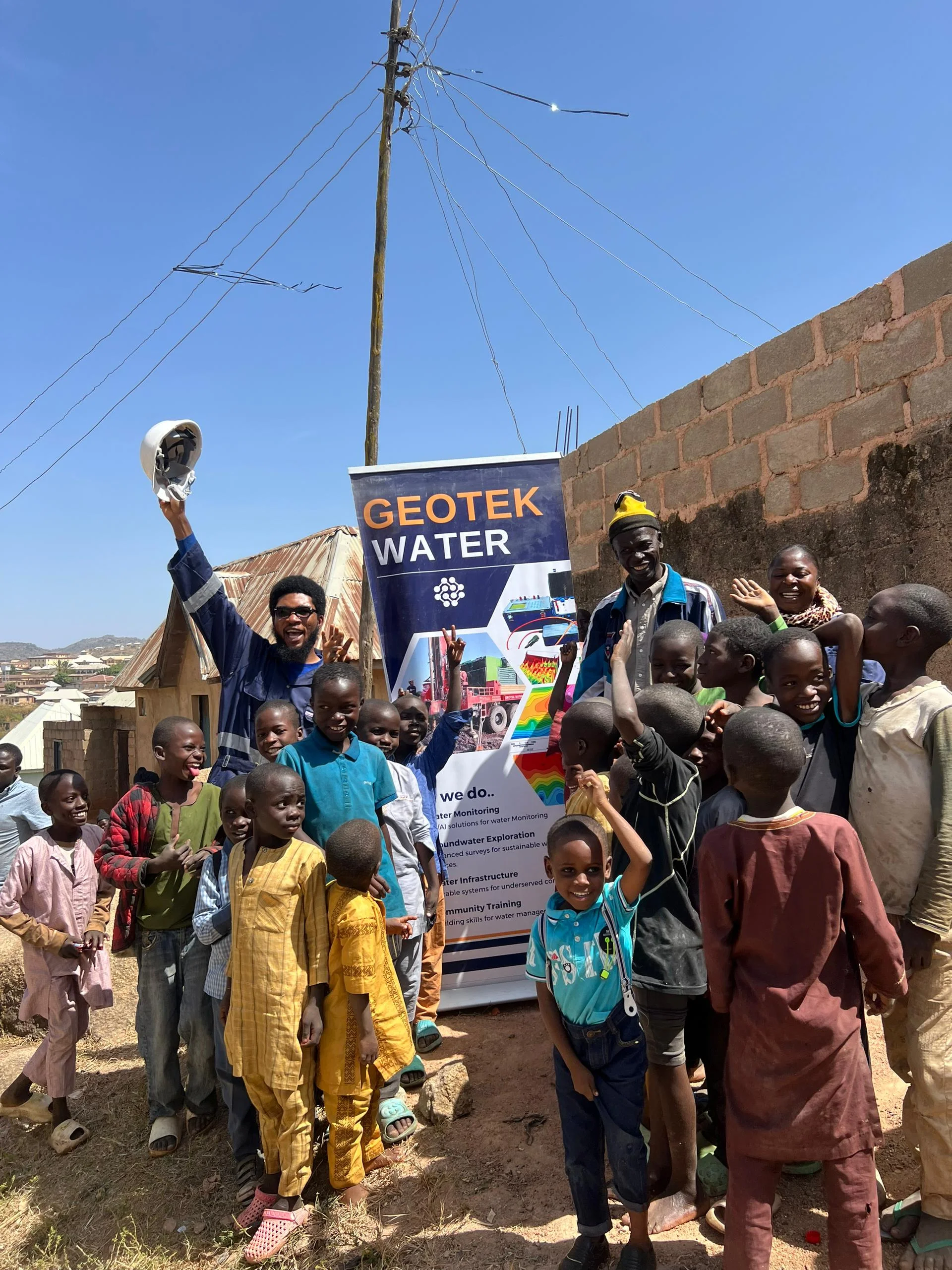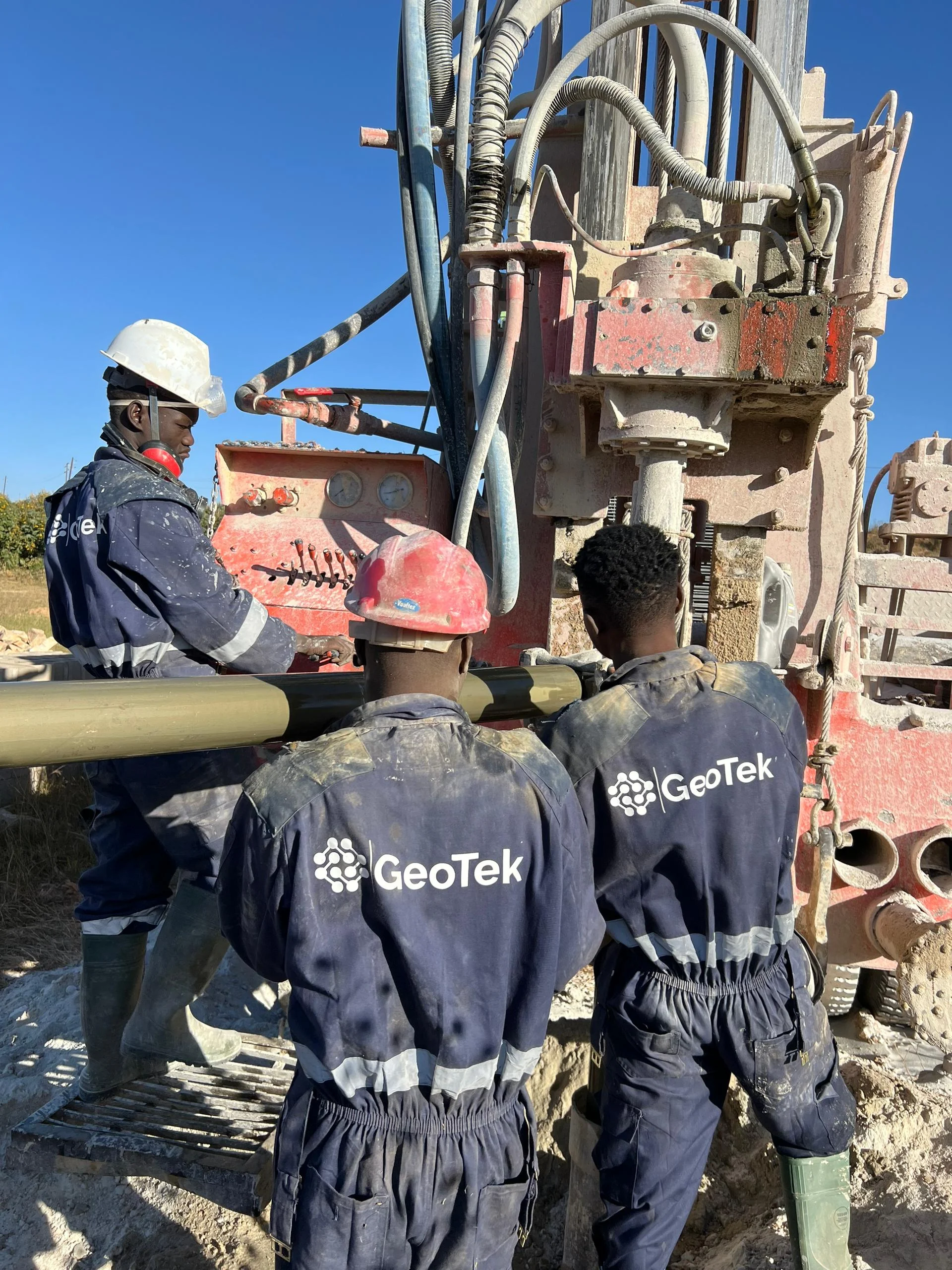We all know the popular saying: water is life. But what if the water is dirty, unsafe, or contaminated? Then life itself becomes a fragile struggle marked by illness, lost potential, and preventable deaths.
This was the reality for Joshua Ichor, founder of Geotek Water Solutions and the 2025 Global Citizen Waislitz People’s Choice Award winner. Growing up in Benue State, Nigeria, Ichor experienced firsthand the devastating effects of limited access to clean water. In Ichor’s community in Benue State, a single borehole served more than 12,000 people. Long queues, frequent conflicts, and hours of waiting in the pursuit of water became part of daily life.
Sometimes you go there, you have to wait for maybe five hours in the queue for people to pump water, and most times there's a fight.
Many residents were forced to turn to nearby streams already contaminated with mud, bacteria, and human waste. Ichor was among them. In 2010, he contracted a severe case of typhoid fever that nearly cost him his life. “Icame down with typhoid fever and it was very severe. My whole skin was peeling and for some of the doctors in the hospital, it was so scary to attend to me,” said Ichor.
This near-death experience sparked Joshua’s resolve to confront the root of the water crisis and led to the creation of GeoTek Water Solutions, a startup social enterprise that leverages smart technology to deliver clean and safe water to underserved communities in Nigeria. Since its launch, GeoTek Water Solutions has installed over 1,000 water infrastructure and monitoring systems, delivering clean water to more than 100,000 people.
At the heart of Geotek Water Solutions’ model is the Geotek Monitor — an integrated hydrological sensor system that is adaptable to water structures, primarily hand pumps in remote areas. It includes a functionality sensor that monitors the mechanical health of the hand pump and tracks usage in real-time. The GeoTek Monitor also collects data through its mobile app, WhatsApp, and even USSD (Unstructured Supplementary Service Data). It also collects data on physical and chemical water quality to track contamination. In areas with no internet access or mobile coverage, the monitor uses a satellite-based communication protocol to gather hydrological data. By improving water infrastructure and ensuring access to clean and safe drinking water, Ichor’s startup is helping to advance the UN’s Global Goal 6, for universal access to clean water and sanitation, and Global Goal 3 for access quality healthcare.
 Joshua Ichor and his team of engineers celebrate with community members after completing a new water infrastructure project.
Joshua Ichor and his team of engineers celebrate with community members after completing a new water infrastructure project.
Ichor’s dream to create access to clean and safe water for people in underserved communities across Nigeria comes with security and financial challenges. Traveling to these remote and insecure areas has placed Ichor and his team in life-threatening situations. This is because of the insecurity and violent clashes between communities in North-Central regions of Nigeria. Still, he insists: “If I don’t go there, then it is not just insecurity that kills people, but waterborne diseases too.” He recognizes the direct and indirect impacts of improved water access on communities, including saving money on healthcare by preventing outbreaks of waterborne diseases like typhoid and cholera.
On top of the insecurity challenges, introducing the GeoTek Monitor into communities comes with its own set of hurdles such as the literacy gap and vandalism. To overcome this, the GeoTek Monitor is built on ‘citizen science’ — an approach that Ichor applies locally, making protecting water a shared responsibility. He employs a diverse local team from the community, trains them to diagnose problems, report breakdowns, and prevent water systems from failing. "Community ownership is very important,” said Ichor. “The training, the awareness, and forming that close bond ensures the technology is properly protected."
 Geotek Water Solutions engineers drilling a borehole to provide clean, sustainable water access in underserved communities. Image: Supplied
Geotek Water Solutions engineers drilling a borehole to provide clean, sustainable water access in underserved communities. Image: Supplied
Financing these projects has also been a challenge. Drilling rigs costs thousands of dollars, and routine maintenance is equally expensive. With prize money from the Global Citizen Waislitz People’s Choice Award, Ichor has set a challenge to improve water access for 100,000 people in 500 days.
I could leave tomorrow and build a comfortable life abroad, but this is the land of my birth. If I don’t work to fix it, then who will?
And this is just the beginning. By 2030, Ichor aims to reach more than 5 million people, cut water infrastructure failures by 80%, and reduce waterborne diseases by half in remote communities. His vision goes beyond Nigeria: he plans to expand GeoTek Water Solutions into five new regions in Africa, using advanced tools like AI-powered monitors and satellite-enabled sensors to keep water systems operational, even in the hard-to-reach areas.